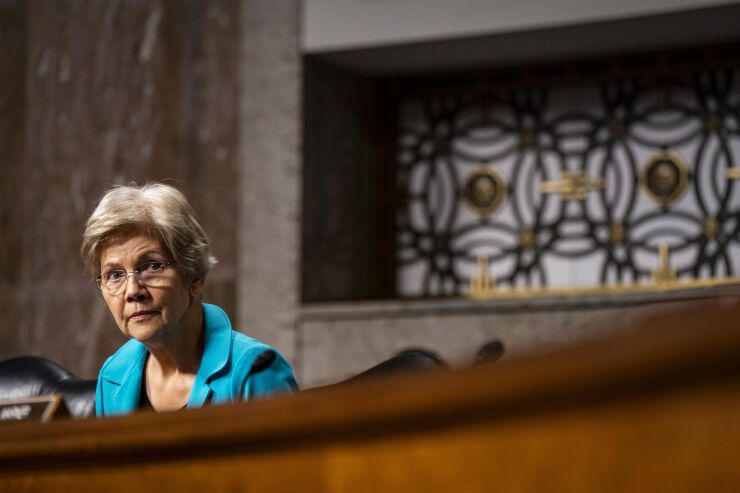
WASHINGTON — Just days after the largest U.S. banks gave a record high performance in the annual stress tests, Sen. Elizabeth Warren, D-Mass., said the Fed's newest plan to test the strength of the largest banks could imperil the financial system.
Warren, the Senate Banking Committee ranking member, said the Fed's plan to
"It would weaken the stringency of the Fed's stress-testing framework and reduce loss-absorbing capital levels at the largest banks in the country — making the banking system more fragile at a moment when President Trump's chaos has the economy on the brink," Warren said in the letter. "It should be withdrawn, and the Fed should abandon its broader tear down of the stress-testing regime."
The Fed in April
Then just earlier this week, most of the country's largest banks
The new stress-test regime and capital buffer assignment proposed by the Fed is meant to be less volatile than previous iterations. Warren — echoing arguments made by financial stability experts who designed the way that the Fed stress tests banks in the aftermath of the 2008 financial crisis — said this lack of certainty given to banks about the nature of an economic shock and the banks' response to it is exactly the point of the tests.
"Firms that do not have certainty as to the results of the stress tests will have more prudent risk management frameworks and fund themselves with more capital to ensure they meet their requirements," Warren said. "A real-world financial shock does not provide big banks with a heads-up and advanced certainty on losses — and nor should the stress tests. With more certainty, firms will be less cautious and more aggressive in increasing their dividends and buybacks, depleting their capital."
Specifically, Warren took issue with an option or an "alternative" proposal within the rule, which would average the tests only if doing so would result in a lower stress capital buffer. Otherwise, it would use only the current year. This would be particularly appealing for banks this year, after they reported good results and now expect lower capital buffers compared with the year before, which had some of the most significant losses in recent years.
"There is absolutely no policy justification for this asymmetric approach, other than working backwards to ensure the weakest possible capital requirements and highest possible shareholder payouts for Wall Street," Warren said.





